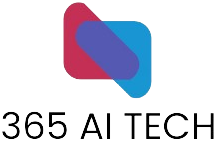Introduction
Artificial intelligence (AI) automation is no longer a futuristic concept; it’s a present-day reality powering business evolution across industries. From streamlining operations to unlocking deeper customer insights, AI is weaving itself into the fabric of successful companies. Let’s explore some cutting-edge real-world examples showcasing how AI automation is driving change in 2024:
1. Beyond Chatbots: Conversational AI Reshapes Customer Service
While chatbots have become commonplace, businesses are pushing boundaries with conversational AI. These advanced AI systems understand complex inquiries, engage in natural dialogues, and personalize interactions. Bank of America’s Erica AI assistant assists with financial tasks and emotional support, while Hilton’s Connie provides personalized hotel recommendations and booking assistance. These interactive AI agents go beyond simple task completion, building trust and emotional connections with customers.
2. Hyper-Personalization Goes Multi-Sensory: AI Meets AR & VR
AI is now venturing beyond traditional data analysis, integrating with emerging technologies like augmented reality (AR) and virtual reality (VR). Imagine trying on clothes virtually with AI-powered size recommendations, or exploring personalized product configurations in an AR showroom. Companies like L’Oreal and IKEA are already using AI-powered AR experiences to personalize product trials and enhance customer engagement.
3. AI-Driven Sustainability: Optimizing Efficiency, Minimizing Waste
Sustainability is a growing concern, and AI is becoming a crucial tool for eco-conscious businesses. AI algorithms can optimize energy consumption, predict equipment failures for preventive maintenance, and streamline logistics for reduced emissions. For example, Schneider Electric utilizes AI to optimize energy usage in buildings, while UPS leverages AI-powered route planning to minimize fuel consumption and carbon footprint.
4. From Prediction to Prescription: AI in Precision Medicine
The healthcare industry is witnessing a paradigm shift with AI-powered precision medicine. By analyzing vast datasets of medical records and genomic data, AI can predict disease risks, tailor treatment plans based on individual characteristics, and even accelerate drug discovery. Companies like Paige AI are developing AI-assisted cancer diagnostics, while Pfizer utilizes AI to accelerate personalized drug development.
5. Democratizing AI: Low-Code & No-Code Solutions for All
Previously, AI implementation was often restricted due to technical complexity. However, the rise of low-code and no-code AI platforms makes it accessible to businesses of all sizes. These platforms offer intuitive interfaces and pre-built AI models, empowering even non-technical teams to leverage AI for tasks like customer segmentation, fraud detection, and marketing automation.
Conclusion
AI automation is no longer a buzzword; it’s a powerful tool shaping the business landscape. From enhancing customer experiences to optimizing operations and driving sustainability, the applications of AI are diverse and constantly evolving. As businesses embrace and adapt to this transformative technology, the future holds exciting possibilities for growth, innovation, and positive societal impact.

